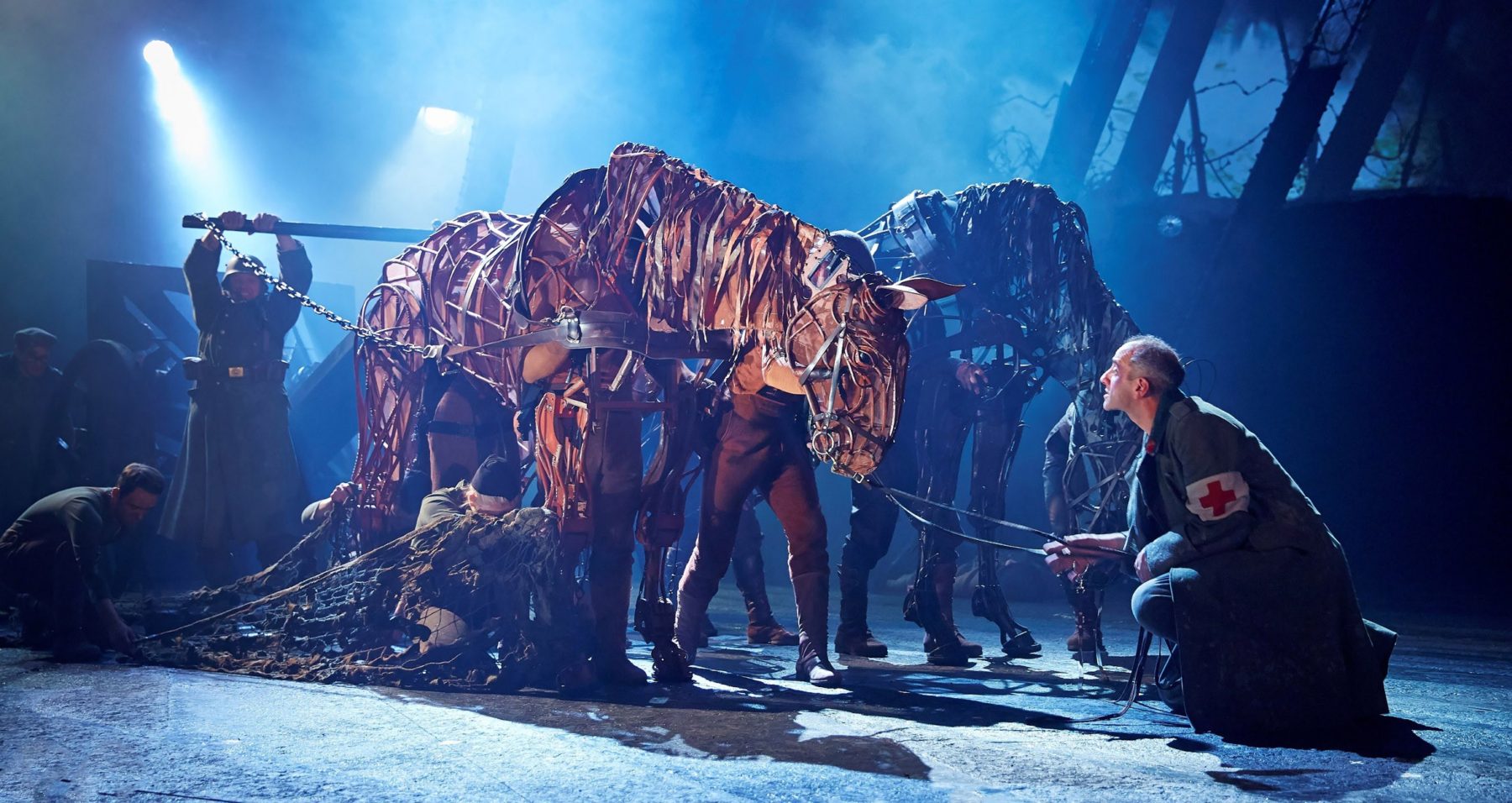War Horse live musicians fall in battle
At the beginning of this month the National Theatre issued redundancy notices for its musicians that perform as part of the hugely successful War Horse at the New London Theatre. The production is one of the National Theatre’s most successful ever, having been seen by over 2.5 million people and even adapted by Steven Spielberg for the big screen.
Yet despite this commercial success, executive director of the National Theatre, Nick Starr, described the musicians as an anomaly, only performing onstage for two minutes, and otherwise playing unseen backstage. However, the identification of said ‘anomaly’ seems financially motivated: ‘this is not about spending less, it’s about spending wisely’ Starr asserts. But is this really spending ‘wisely’ as audience goers spend their hard-earned money to hear prerecorded audio tracks replace the delight of live performance?
Occurrences such as these can now unfortunately come to be expected thanks to the growing digitalisation of the theatre. Even in the musical theatre stronghold of London’s West End, there is a growing amount of prerecorded and synthetic music being used to augment pit orchestras. Advances in music technology combined with, perhaps, a need to ‘spend wisely’ as Starr put it, has seen producers and musical directors turn more towards backing tracks, keyboard synths and samples, with even hugely successful shows like Les Miserables having their orchestras reduced. However freelance musician and MD, Andrew Corcoran, in an interview with The Stage, said he’s not seen any pressure to reduce the use of live music in the theatre:
‘In a weird way there’s more of a push back to bigger bands and live’ he said. ‘Keyboard samples are largely used these days to augment the live instruments, without particularly being heard themselves, so two live violins plus keyboard violins sound like a full string section.’
Andrew Corcoran, Freelance Musician and MD
As Corcoran states, synthetic music does have its benefits. It’s a consistent way of providing the variety of sounds that audiences expect these days in the theatre. Commercial recordings and big budget films with full orchestra recordings give audiences an almost unrealistic expectation of what the shows will sounds like when they see it live in the theatre. Productions use these prerecorded audio tracks to provide the big-budget sound and recognizable riffs night after night without the inevitable flaws or expense of using live musicians. After all, computers don’t need to call in sick or go on holiday too often.
However it still begs the question of whether this is what audiences want to hear from their favourite shows. With the price of theatre tickets remaining high, audience members expect value for money in the productions they see. Is removing the live music element from performances, replacing them with prerecorded tracks, the best option for the theatre?
The National Theatre clearly thinks this is so. Having announced in late 2012 its plans to move to prerecorded music rather than live performers, the theatre systematically reduced the amount the War Horse musicians that were required to play in the show until they were turned away from their work last month.
‘If War Horse were produced at the National Theatre now, it wouldn’t have live musicians,’ the spokeswoman for the National Theatre told The Stage. ‘Productions at the NT now have live musicians when it’s in the production’s best artistic interests.’
Spokeswoman, National Theatre
The National Theatre emphasise that War Horse is not a musical, but a play that features music. This crucial definition is what has allowed the theatre to cut musicians Neyire Ashworth, Andrew Callard, Jonathan Eddie, David Holt and Colin Rae from the show. As the high court ruled against their injunction to be allowed back to work, David Reade QC stated that ‘the orchestra was not an integral part of the play, and indeed there is no live band in any other production [of War Horse] around the world.’ Despite this disappointment, the Musicians Union vows to continue to fight for the War Horse musicians’ strong breach of contract claim, with hopes of not ending their stint at the National Theatre on such a bitter final note.

Comments